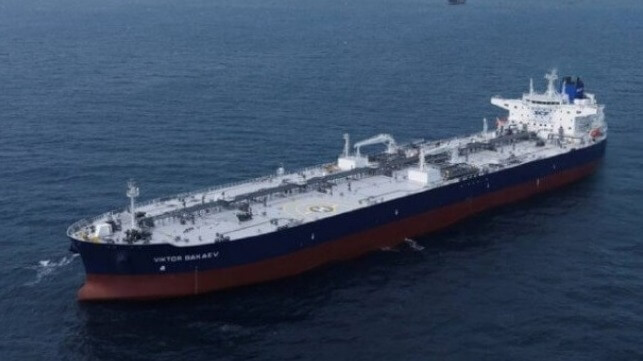US Tightens Noose Imposing More Sanctions for Russian Price Cap Violations

For the third time in seven weeks, the U.S. Department of Treasury’s Office of Foreign Asset Control (OFAC) has imposed sanctions targeting the trade in Russian oil. It is reported to be part of a concerted campaign that is beginning to affect the Russian oil trade and causing some shipping companies to reconsider their business transporting Russian oil.
“Enforcement of the price cap on Russian oil is a top priority for the United States and our coalition partners,” said Deputy Secretary of the Treasury Wally Adeyemo in a statement issued today, December 1, outlining the latest actions. “By targeting these companies and their ships, we are upholding the dual goals of the price cap by restricting Russia’s profits from oil while promoting stable global energy markets.”
There have been numerous reports that the price of $60 a barrel launched a year ago has had little effect on the trade which has continued to flourish and grow. S&P Global Maritime Intelligence in a recent report calculated that there were over 432 ship-to-ship transfers of Russian oil in the third quarter up from basically none at the start of 2022 before the Ukraine war. They reported that the price of Russia’s main crude export has risen from $52 in June to nearly $80 in September well exceeding the price cap.
Today’s action by OFAC imposed sanctions on three shipping companies and designated three more tankers as blocked property. This follows the first round of actions launched on October 12 which blocked two crude oil tankers and a second round of sanctions on November 16 which also targeted three tankers indirectly associated with Russia’s Sovcomflot.
“The vessels NS Champion, Viktor Bakaev, and HS Atlantica carried Russian Urals crude oil priced above $70 per barrel after the crude oil price cap took effect. The NS Champion, Viktor Bakaev, and HS Atlantica used U.S.-person services while transporting the Russian-origin crude oil,” the U.S. stated in the announcement.
The NS Champion (110,000 dwt) built in 2005 and the Viktor Bakaev (118,175 dwt) built in 2013 have both been previously managed by SCF but are now listed as run by UAE-based Sterling Shipping and Streymoy Shipping, which were each sanctioned for the price cap violations. Both vessels are registered in Liberia. Also designated is the HS Atlantica (114,896 dwt) built in 2006. It is managed and registered in Liberia and management in India.
U.S. officials said that the actions were taken because the vessels used Price Cap Coalition services while carrying Russian crude oil about the coalition-agreed price cap. They highlighted the action as once again demonstrating Treasury’s commitment, alongside its coalition partners, to “responsibly reduce oil revenues that the Russian government uses to fund it is war against Ukraine.”
The Financial Times is quoting a U.S. senior diplomat as saying that the U.S. aims to cut Russia’s oil and gas revenues in half by 2030. The report says that the U.S. is looking for ways to target the “shadow fleet” of tankers.

that matters most
Get the latest maritime news delivered to your inbox daily.
Some indications are that the efforts are already having an effect. Bloomberg traced the previous batch of blocked tankers as transporting oil to India and the AIS signal from the Viktor Bakaev shows it just departed India. Reports are that India has been holding another sanctioned tanker offshore while it debates its response.
At the same time, Reuters is reporting that three Greek shipping companies stopped transporting Russian oil to avoid U.S. sanctions. The U.S. is believed to have sent written warnings to the Greek shipping community calling for them to immediately cease participation in the Russian oil trade and warning of potential actions. The U.S. has previously gone after Greek shipping interests for transporting Iranian oil including the seizure of the oil from the Suez Rajan controlled by Empire Navigation of Greece.
